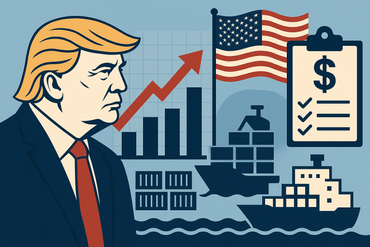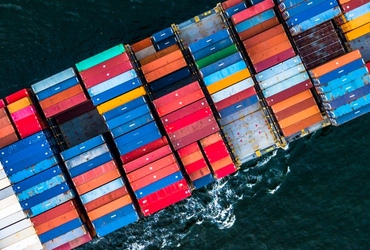
FMC investigates demurrage and detention fees practices



The Federal Maritime Commission has launched a formal investigation into port demurrage, detention, and free time practices. As part of the investigation, terminal operators and ocean common carriers will be called on to submit relevant data and information.
The investigation, launched last month, is in response to a petition filed by a coalition of shippers, associations and trucking organizations in January. The coalition claims some of these fees are unfair because certain circumstances mean their ability to retrieve their cargo and return equipment is out of their control. They’re asking for the FMC to restrict ocean carriers’ ability to impose what it says are unreasonable and unfair practices.
The first phase of the investigation involves obtaining information regarding carriers and ports’ practices over such fees. Special attention will be given to cases where shippers weren’t able to retrieve their cargo for reasons beyond their control.
These include delays due to customs exams, which can sometimes take days or weeks to complete. The container may need to be moved to a customs-approved warehouse, which adds into the delay. Such exams are out of the client’s control because the container is outside of the port but yet he faces these charges.
“Bad weather and strikes are also examples of situations where the client cannot do anything to move their cargo. Carriers do offer extended free time. But after the dust settles, these disruptions will have eaten into the free time and you may end up only having 1-2 days to effectively pull out the cargo, instead of the usual 4-5 days.”
- Klaus Lysdal, Vice President of Sales & Operations, iContainers
Shippers have long complained about carriers abusing these detention, demurrage, and per diem fees, claiming that they’re using these “exorbitant fees” to drive their revenues. The peak of the problem came in late 2014 and early 2015 during a period of intense congestion at the West Coast ports and the aftermath of Hanjin Shipping’s bankruptcy in August 2016.
FMC call for cooperation
The FMC is now calling for all shippers, dray truck companies, and other affected parties who can provide supporting materials of unreasonable practices and fees to cooperate.
“This investigation is absolutely necessary given the prevalent situation shippers find themselves in. Billing and rate levels skyrocketed as ocean rates took a dive years ago, resulting in plenty of situations where charges and cost are accrued for something the shipper cannot control nor have influence over. But the cost is accrued and someone has to pay. That usually ends up being the shipper.”
- Klaus Lysdal
Such practices are common and have been ongoing for years. But the investigation has come at the right time, given the large pool of data available now for the FMC to study and make an informed decision.
“We’ve been seeing the pattern for a while now. One could argue that investigations should have started years ago. But an investigation now is the right time, given the way these charges have escalated in recent years, and it’s really only just now that there’s sufficient data to confirm such practices and to determine if and what new regulations are needed.”
- Klaus Lysdal
Report focus
The investigation will aim to develop a record of the types of situations and charges that arise as a result, and the steps taken by NVOCCs and BCOs to avoid such charges. These are the five main issues that the investigation will focus on:
Whether the alignment of commercial, contractual, and cargo interests enhances or aggravates the ability of cargo to move efficiently through US ports
When has the carrier or marine terminal operator tendered cargo to the shipper and consignee
What the billing practices are for invoicing demurrage or detention
What the practices are with respect to delays caused by various outside or intervening events
What the practices are for resolution of demurrage and detention disputes between carriers and shippers
Freight forwarders caught in the middle
As the middleman, freight forwarders are often not spared of the problems arising from these practices, often having to borne the collateral damage, such as the fees or an angry client, with no clear answer to give.
“Sometimes, the forwarder gets stuck with the fees, which happens just about every time there’s a vessel delay and cut-offs are moved, or after equipment is pulled and earliest return date is moved back, or while driver is in line to pick up the equipment and the release date changes, or there is no equipment available when he gets to the container yard despite having checked before making the drive. Now the driver ends up with a dry run that someone has to pay for. These are things that happen.”
- Klaus Lydal
iContainers will be submitting a few examples of their own to the Florida Customs Brokers and Forwarders Association, which has been gathering materials to present in their meeting with Commissioner Dye.
_“We have one case where it took the carrier over two weeks to internally process the telex release on a shipment which caused it to run into demurrage which our client had to pay for prior to getting his cargo released.
Transparency is definitely lacking here. Some carriers cannot even provide you with the actual amount you will be billed for until they process the invoice. This means that as a shipper, you will be stuck with knowing you have delay fees pending but not know the amount until you get hit with the invoice, which for some carriers can take six months to process.”_
- Klaus Lysdal
FMC investigation report
An interim report of the findings and recommendations will be issued in early September, with a final report due three months later.
“The ultimate resolution of this investigation will have the potential to affect every ocean common carrier calling the United States. It is vital that the information we gather is representative of business and operational practices, as well as market conditions, nationally.”
- Commissioner Rebecca Dye
Hopefully, the investigation can bring about more transparency into the way the types of charges and the circumstances under which they can be billed.
“I hope for clearer and more transparent rules on when and how these fees can be applied, which should be fairly easy and straightforward to introduce. In most cases, we all just want to make sure we are on the same page and that the charges that are due can be settled at the appropriate levels. So nobody gets stuck with charges they shouldn’t have to pay.”
- Klaus Lysdal
Related Articles


